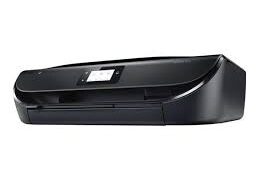Commercial grills play a vital role in the foodservice industry, allowing restaurants, cafes, and other culinary establishments to prepare a wide range of delicious grilled dishes. These grills are specifically designed to meet the high demands of commercial kitchens, offering superior performance, durability, and versatility. In this article, we will explore the benefits of commercial grills, their various types and features, and how they contribute to enhancing efficiency and flavor in the foodservice industry.
Commercial grills are heavy-duty cooking appliances designed for professional use in commercial kitchens. They are built to withstand high-volume cooking, providing consistent heat distribution, fast cooking times, and excellent flavor retention. Commercial grills are available in various sizes, configurations, and fuel types to accommodate different cooking needs and kitchen setups.
Benefits of Commercial Grills
- Efficiency: Commercial grills are engineered for efficiency, allowing chefs to cook large quantities of food quickly and evenly. The powerful burners and precise temperature controls enable fast preheating and reduce cooking times, increasing overall kitchen productivity.
- Versatility: Commercial grills offer versatility in cooking methods, allowing chefs to grill, sear, roast, or smoke a wide variety of ingredients. They come with adjustable grates, temperature zones, and specialized features that cater to different culinary techniques and menu offerings.
- Flavor Enhancement: Grilling imparts a distinct smoky flavor and desirable char marks on food. Commercial grills provide consistent heat distribution and precise temperature control, ensuring that grilled dishes achieve optimal flavor, juiciness, and caramelization.
- Durability and Reliability: Designed for heavy-duty use, commercial grills are built to withstand the demands of a busy kitchen environment. They are constructed from high-quality materials such as stainless steel, which resists corrosion and maintains durability even with frequent use.
- Easy Cleaning and Maintenance: Many commercial grills feature removable grates, drip trays, and grease management systems, making them easy to clean and maintain. This saves time for kitchen staff and ensures hygiene standards are met consistently.
Types of Commercial Grills
- Gas Grills: Gas grills are the most common type used in commercial kitchens. They run on natural gas or propane and offer precise temperature control, quick heat-up times, and even heat distribution.
- Charcoal Grills: Charcoal grills are favored for their authentic smoky flavor. They use charcoal as fuel and provide a traditional grilling experience, especially for establishments that prioritize the rich taste of charcoal-grilled food.
- Electric Grills: Electric grills are suitable for kitchens with limited ventilation or where open flames are not allowed. They are easy to use, require no fuel or external ventilation, and provide consistent heat for grilling.
- Flat Top Grills: Flat top grills, also known as griddle grills, have a smooth, flat cooking surface. They are versatile and allow for cooking a variety of items, including burgers, pancakes, vegetables,

















